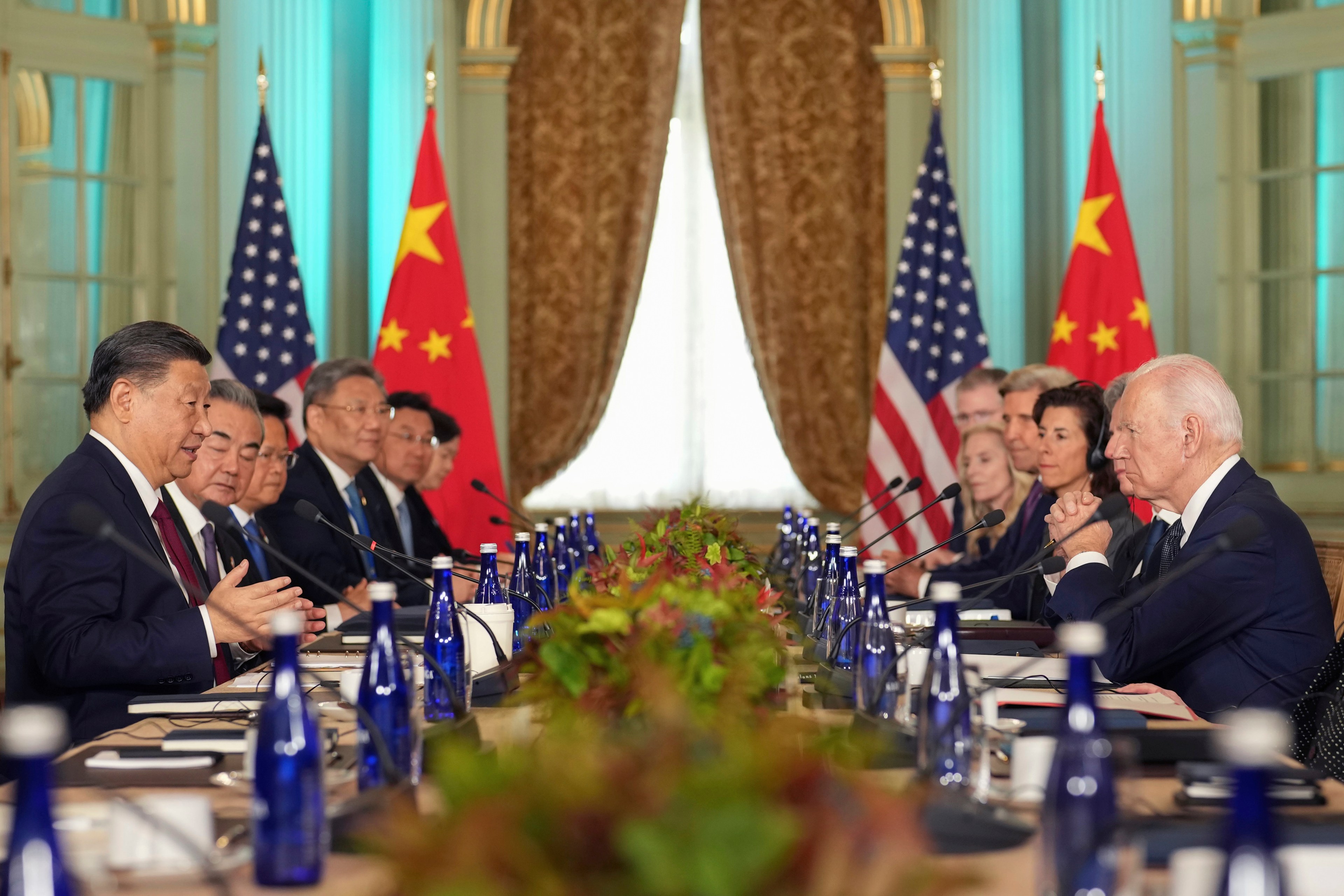President Joe Biden and China’s Xi Jinping opened their first face-to-face meeting in more than a year Wednesday with a solid handshake ahead of talks with far-reaching implications for a world grappling with economic crosscurrents, wars in the Middle East and Europe, tensions in Taiwan and more.
The two leaders, meeting at a bucolic country estate in Woodside, which is south of San Francisco, are looking to get communication back on track after a tumultuous year and to show the world that while they are global economic competitors, they’re not locked in a winner-take-all face-off.
Biden arrived first and awaited Xi, who got out of a black car and took Biden’s hand before the two leaders walked a red carpet through the estate’s grand entrance with a Chinese flag on one side and an American flag on the other. Five Marines stood in formation.
Biden told Xi in his opening remarks: “It is paramount that you and I understand each other clearly, leader to leader, with no misconceptions or miscommunications. We have to ensure competition does not veer into conflict, and we also have to manage it responsibility, that competition. That’s what the United States wants, and what we intend to do. I also believe that’s what the world wants from both of us— candid exchange.”
Xi said he believed in the “promising future” of the bilateral relationship.
“The U.S.-China relationship has never been smooth sailing over the last 50 years or more, and it always faced problems of one kind or another. Yet it has kept moving forward amid twists and turns. For two large countries like the U.S. and China, turning our backs on each other is not an option.”
Biden is expected to let Xi know that he would like China to use its sway over Iran to make clear that Tehran or its proxies should not take action that could lead to expansion of the Israel-Hamas war. The Biden administration also sees the Chinese, a big buyer of Iranian oil, as having considerable leverage with Iran, which is a major backer of Hamas.
Ahead of the meeting, senior White House officials said Biden would walk away with better, more concrete outcomes compared with their last meeting, in November 2022 in Bali, Indonesia, on the sidelines of the Group of 20 leaders summit. There will be agreements from China to help stop the flow of chemicals used in the production of illicit fentanyl, and to revive communications between the militaries—increasingly important particularly as unsafe or unprofessional incidents between the two nations’ ships and aircraft have spiked.
Biden on Tuesday billed the meeting as a chance to get Washington and Beijing back “on a normal course corresponding” once again.
Even before their meeting, there were some signs of a thaw: The State Department on Tuesday announced that the U.S. and China—two of the world’s biggest polluters—had agreed to pursue efforts to triple renewable energy capacity globally by 2030, through wind, solar and other renewables.
They are in California for the annual Asia-Pacific Economic Cooperation forum, but they met one-on-one at Filoli estate, a country house and museum about 25 miles south of San Francisco.
The APEC summit events already have attracted considerable demonstrations, and more were expected Wednesday, including protests against Xi and against multinational corporations focused on profits.
In the hours before the meeting, White House officials said Biden was coming into the talks bolstered by signs the U.S. economy is in a stronger position than China’s, and that the U.S. is building stronger alliances throughout the Pacific.
The U.S. president, speaking at a campaign fundraiser on Tuesday evening, pointed to his upcoming meeting as an example of how “reestablished American leadership in the world is taking hold.” As for China, the president told donors, it has ”real problems.”
